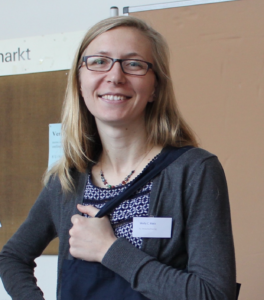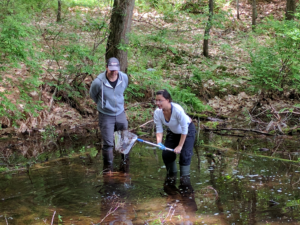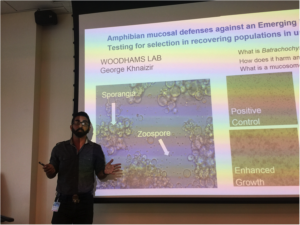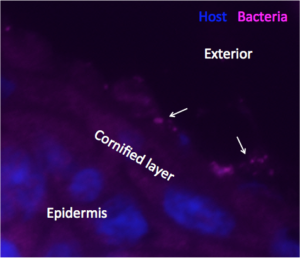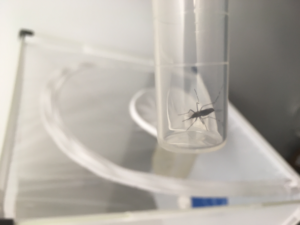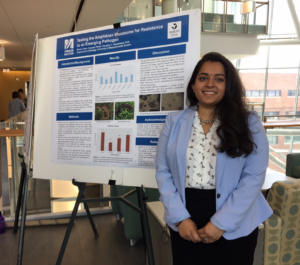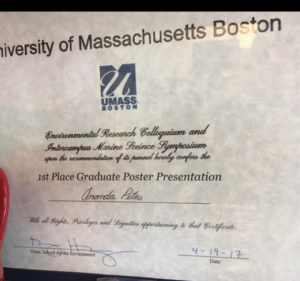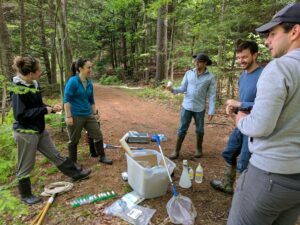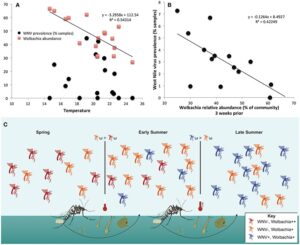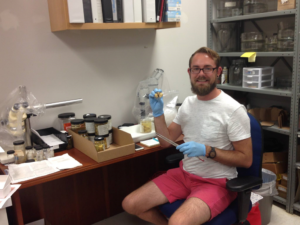
Ph.D. student Brandon LaBumbard sampling crayfish at the North Carolina Museum of Natural Sciences
“The Non-molluscan Invertebrate Unit welcomes UMass Boston Ph.D. student Brandon LaBumbard into the lab this week. Brandon’s research focuses on effects of chytrid fungus in amphibian declines. So, why is he holding a crayfish in this photo? Crayfishes are potential vectors by which chytrid is spread. Brandon is working with the NMI Collection’s extensive virile crayfish (Faxonius virilis) holdings, sampling for chytrid presence on, and in, these organisms. The virile crayfish is of particular interest as it has been widely introduced into regions of North America where chytrid has been particularly problematic.” By Bronwyn Williams on the Invertebrates, North Carolina Museum of Natural Sciences Facebook page from September 6, 2017 https://www.facebook.com/groups/1413271208984999/?fref=nf
